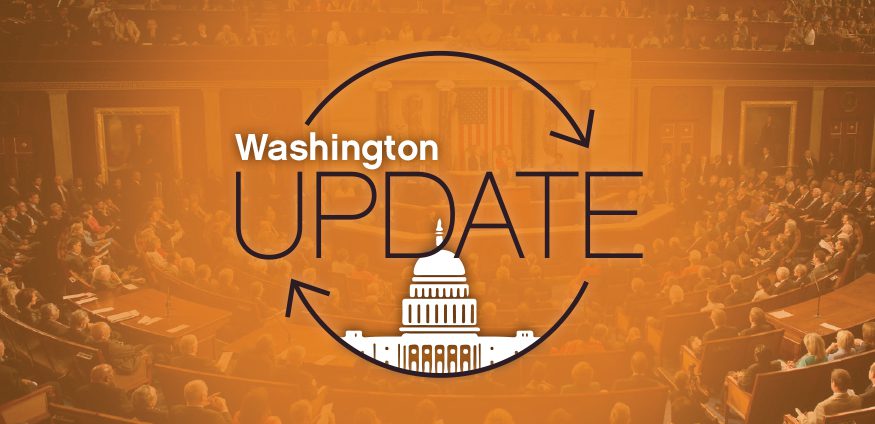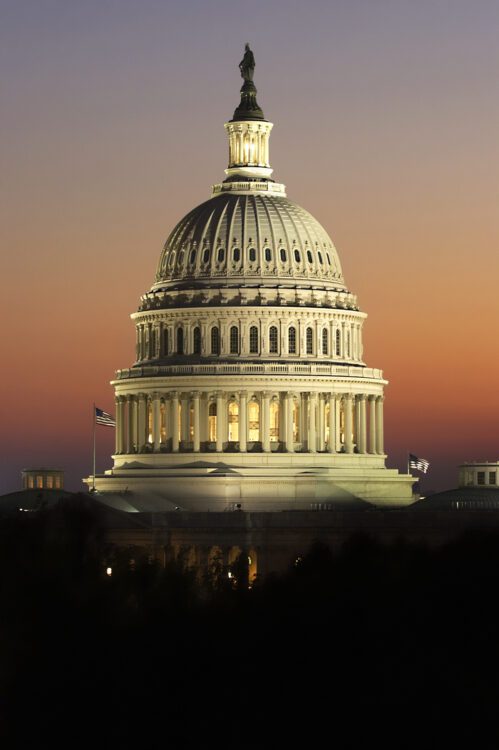- The federal government’s fiscal year ends on September 30. Congress needs to pass a budget for fiscal year 2017, which runs from October 1, 2016, to September 30, 2017. If Congress can’t agree on a budget by then, it must consider other options for keeping the government open and running beyond the end of this month.
- Momentum is building in both chambers for a short-term stopgap measure, known as a continuing resolution (CR). The resolution, which would extend current funding levels for all government agencies through December, would avoid the specter of a government shutdown in the weeks leading up to the elections.
- Senate negotiators worked through the weekend on a three-month stopgap spending bill that would include aid to combat the Zika virus. But such a short-term stopgap has been much more contentious in the House, where a divided Republican conference has been unable to agree on any plan. Yesterday afternoon, top congressional leaders from both chambers and both parties were expected to meet with President Obama at the White House.
- A final deal on a continuing resolution will require some skilled negotiating. There is a possibility for floor action in the Senate this week on a stopgap spending bill.
- While a stopgap measure would fund the government until December, what happens after that is much less clear. House conservatives are seeking a much longer CR lasting until March 2017. This would put an enormous amount of pressure on the new administration and Congress to pass all 12 spending bills before the government runs out of money. Typically, after a CR, an omnibus is drafted, consolidating all 12 spending bills to be passed at the same time. House Speaker Paul Ryan is trying to avoid this method all together. The alternative is to pass a series of minibuses, which is a piecemeal approach to pass what bills you can and fund the others through another CR through the end of fiscal year 2017. Many Republican appropriators and Democrats are opposed to this method due to agencies’ inability to start new programs or develop new policy.
- Even if Congress can establish the FY 2017 budget by December, a new issue will arise in March when the nation’s debt limit will need to be raised again.
- Meanwhile, Bread is continuing to push for increased funding for global maternal and child nutrition (the request of the 2016 Offering of Letters). We are currently leading a community sign-on letter to congressional appropriators asking for an increase in global nutrition funding in FY 2017 during omnibus negotiations if there is any opportunity. There are 16 organizations signed on at this point, with more expected.
Child Nutrition Reauthorization
- The Senate left for its August recess without voting on child nutrition legislation (the focus of Bread’s 2015 Offering of Letters). Bread staff has been in communication with Senate Agriculture Committee staff, who report that the Senate hopes to bring the bill to a vote before it leaves this month. However, work remains in tweaking the bill to make it budget-neutral.
- Over the summer, Bread staff met with House leaders to discuss criminal-justice reform. During these meetings, Speaker Paul Ryan (R-Wisc.) affirmed his commitment to passing something in this area this session. This month, House Republican leaders are meeting with rank-and-file members to get a better idea of whether or not there is support from the party for this.
- Bread supports bills that address sentencing and corrections reform. Bread and its partners are meeting with targeted House offices this week to urge support for bipartisan legislation that can conference with the Senate. Last week, Bread sent out an Action Alert to our network urging them to contact their member of Congress to support criminal-justice reform that includes sentencing reform.
Food-Aid Reform
- We anticipate that the maritime industry will attempt to insert language into legislation again at the end of the year to increase cargo preference (change the shipping rules to their advantage) for food aid. Other negative changes to the maritime rules for food aid could also be included.
- These changes would have a detrimental impact on food-aid programs. Our last estimate was that potentially 2 million fewer people would be reached.
- We don’t expect anything to occur in the next couple of weeks, but this issue may need a quick response if we see any movement during the lame-duck session.
Global Food Security Act/Feed the Future
- Bread is partnering with InterAction, Feed the Future, and other organizations to host a celebration on Capitol Hill of the passage in July of the Global Food Security Act. Bread’s president, Rev. David Beckmann, is the master of ceremonies, and we are expecting Sen. Bob Casey (D-Pa.), Sen. Johnny Isakson (R-Ga.), Rep. Betty McCollum (D-Minn.), Rep. Ed Royce (R-Calif.), Rep. Chris Smith (R-N.J.), USAID Administrator Gayle Smith, and former Sens. Richard Lugar (R-Ind.) and Mike Johanns (R-Neb).
Act Now!
Urge Congress to pass a fiscal year 2017 budget that adequately funds critical anti-hunger and anti-poverty programs like WIC, Summer EBT, and international poverty-focused development assistance.
Also, download Bread’s new fact sheet on the recently released hunger data. These figures help drive Bread’s legislative work in Congress.



